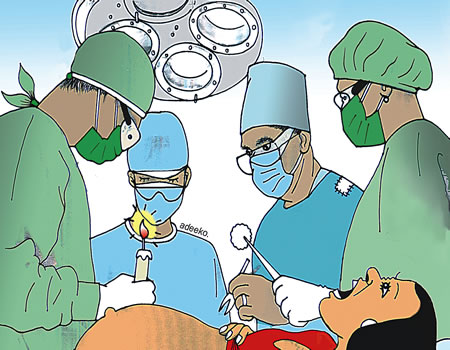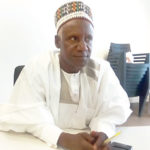In changing the story, Adewole came up with the idea of rehabilitating a minimum of 10,000 PHCs across the country with each ward having a functional PHC. With budget provision dwindling, he turned to development partners and state governors to drive the initiatives. He came up with three models that could be used to fund PHCs across the country. These are Result Based Financing (RBF), Performance-Based Financing (PBF) and Decentralised Facility Financing or Direct Facility Financing (DFF). Though most of the PHCs are owned by state governors, Professor Adewole, with support from President Buhari, promised to assist states in getting the required funds from international donors, many of whom were keen in rendering assistance to the country in the provision of healthcare facilities. Late last year, the Health Minister went on a tour of three PHCs rehabilitated in Nasarawa State using three different models highlighted above. At the end of the tour, Adewole said that the essence of the mission was to assess which of the models to recommend to state governors. “We have visited a PBF supported facility, a DFF supported facility and one that is an orphan, with no support and the difference is clear.Part of our challenge is to decide which one we are going to use to fund the PHCs all over the country. Maybe I am biased, but I am a supporter of DFF and if you ask me to grade the PHCs I have visited today, the DFF is the best, followed by one in Akwanga and then the other one at Wulko.”
The Health Minister has also, under his watch, strengthened and upgraded the National Centre For Disease Control (NCDC), to a level where it can successfully tackle any health emergency in the country. It was therefore not surprising when the agency successfully managed the outbreak of Lasa fever in some parts of the country as well as the monkeypox virus that broke in the latter part of last year. Indeed, there have been several commendations for what the NCDC has achieved so far with the National Assembly now set to empower the agency by enacting relevant laws to strengthen the work of the agency. A former Chief Medical Director at University College, Ibadan, before becoming the Vice Chancellor of the entire University, Professor Adewole has also turned his attention to the Tertiary Health Institutions and he has identified eight of them to be upgraded to World-class teaching Hospitals. With one coming from each of the six geopolitical zones in the country in addition to the Lagos State University Teaching Hospital and the National Hospital, Abuja, Professor Adewole has embarked on the comprehensive upgrading of facilities in those teaching hospitals. Each of those centres will now devote much of its resources to research on Cancer and one other major ailment such as trauma, Kidney problem, liver issue etc. It was under his watch that the ‘Save One Million Lives’ programme was launched on the 14th of July, 2016. The programme is essentially state driven but with federal government support as well as support from international donors making available $350m while each state got $1.5m in the first trench. The money is meant to assist state governors to provide high impact Maternal and Child health care services across the country.
The programme is however not finance driven but performance driven, as states that are able to meet set targets benefit by further access to the funds. The overall objective of the programme as the name implies is to ensure that one million lives of women and children in remote areas, who may not have access to health care, are saved. To further ensure that Nigerians have access to good health, Professor Adewole has pursued vigorously, the implementation of the Basic Healthcare Provision Fund which was established under the National Health Act No 8 of 2014. The Act was enacted to ensure improved health outcomes, provide a legal framework for the provision of health care services and to establish an organisational and management structure for the health system in the country. Indeed, the Act specifies that all Nigerians shall be entitled to a basic minimum package of health service (BMPHS), while funding for the BHCPF would be from contributions, including an annual grant from the federal government of not less than one percent of the Consolidated Revenue Fund (CRF), grants from International donors and funds from other sources. The National Assembly has given assurance that the one percent grant as stated in the policy framework would soon become a reality before the end of the year.
The minister has also had to launch a special intervention for the North East region of the country after the dreaded Boko Haram terrorists were sent packing from the region as he has had to visit Borno, Bauchi, Yobe and Taraba States.During the visit, Professor Adewole and his team met with state governors, state health teams, Nigerians living in internally displaced camps and the programme he put in place has ensured that there was no outbreak of epidemic in any of those camps. The Rapid Result Initiatives that he launched ensured that over 200,000 undernourished children in the North were treated. Under his watch, he also established the National Supply Chain Integration Project in a bid to ensure that Nigerians have access to a continuous and available supply of safe medicines all year round.
- Akintunde is Special Assistant, Communication and Strategy to the Health Minister.






